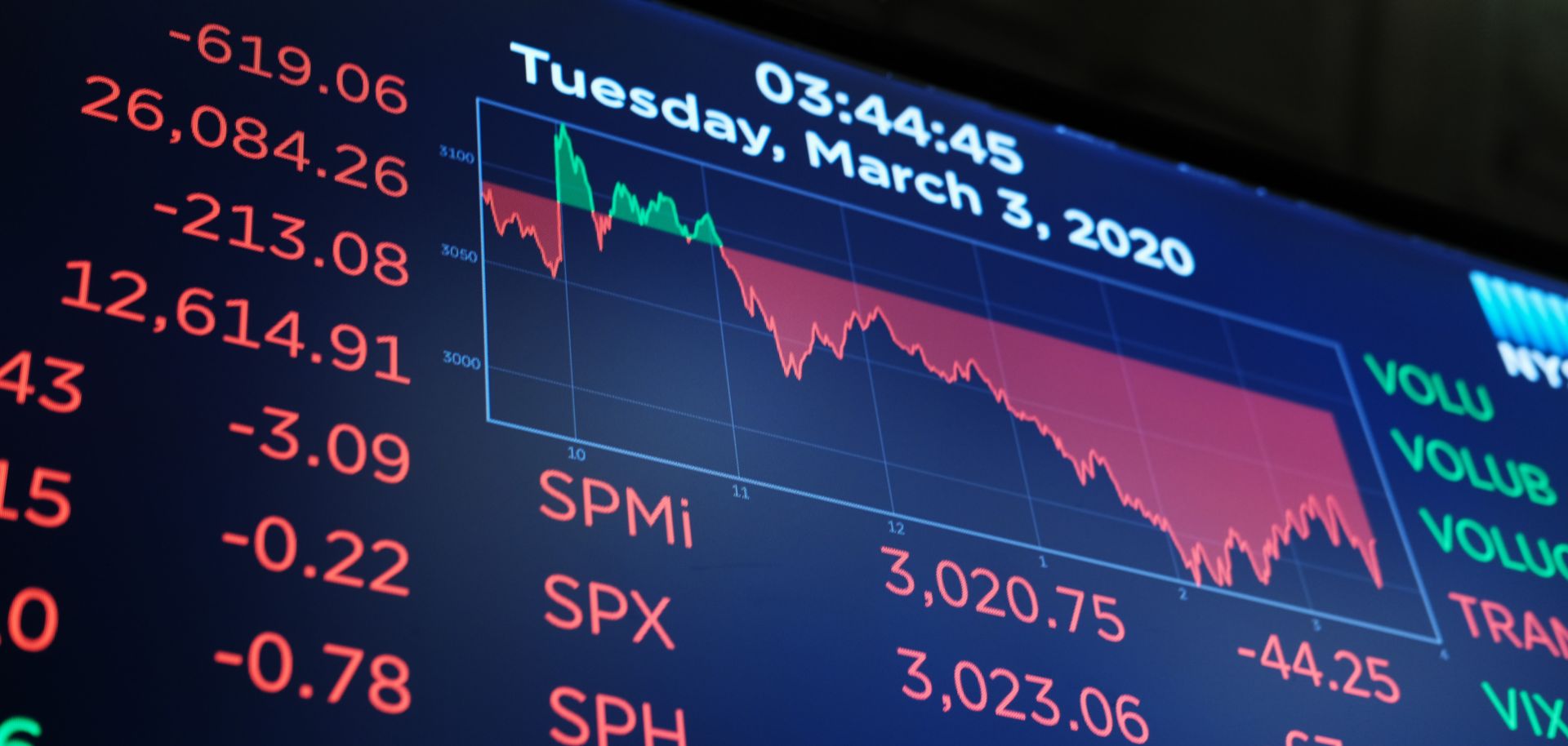ASSESSMENTS
Anticipating Global Economic Risks
Mar 9, 2020 | 11:00 GMT

A board on the floor of the New York Stock Exchange (NYSE) on March 03, 2020. Following a strong market surge, the Dow Jones Industrial Average plummeted once again amid growing concerns over the economic impact of the coronavirus outbreak.
(Spencer Platt/Getty Images)
Highlights
- Trade spats between the United States and other countries, notably China and those in Europe, have raised fears of a slowdown in economic activity, or worse.
- Central banks are now much more involved in regulating economies than they were before the global financial crisis, but are frequently under increased scrutiny and political pressure.
- Central bankers in Europe, the United States, the United Kingdom and Japan have all expressed concern about what they see as their lack of room to maneuver.
- Given the interconnectedness of markets, changes in one market can often have an outsized impact in other markets, particularly those with high sovereign debt risk or weak currencies.
Subscribe Now
SubscribeAlready have an account?
